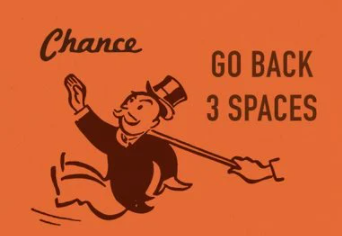EUTM Invoice Scams: German Courts deliver judgement against fraudsters
24th October 2024

Issues relating to use of trade marks is coming to the fore of EU trade mark law and may have a significant effect on registered trade marks and the examination of trade mark filings before both the EUIPO and National Intellectual Property Offices in EU member states.
In the USA, and in many other jurisdictions such as India, there are use requirements scheduled at 3–5 year intervals where evidence of the use made of the trade mark must be provide to the Intellectual Property Office. This is not a requirement for the EU or in fact for any national EU member states. Rather, an EU trade mark may remain on the register unused for a period of 5 years after registration before third parties are entitled to challenge the trade mark on the basis of non-use. However, recent decisions bring into question if the EU system may be heading towards a more formal use requirement.
When the EUIPO opened in 1996, fees for additional classes were quite low. The cost of a second class is still negligible and acts as an incentive to file for extra goods or services. Filing for an additional class is perfectly acceptable if you intend to use the mark for those goods/services in the future, for example where you are in the process of preparing to market a product.
It is imperative that an applicant intends to use the goods/services they file for either at the time of filing or in the future. Where an applicant has no intention to use the mark for some or all of the goods/services, the mark may be deemed to have been made in bad faith in certain circumstances. Bad faith largely deals with the intention of the filer at the time of filing and is based on anti-competitive laws to prevent others from filing someone else’s mark, or from taking advantage of someone else’s reputation. Filing ghost marks that are not used but hamper the use of a mark by a third party may be bad faith where the mark was never intended to be used.

Sky v SkyKick C-371/18
Last year the High Court of England and Wales referred questions to the Court of Justice of the European Union relating to whether a broad specification was made in bad faith. The CJEU found that where there was no foreseeable prospect that Sky would ever intend to use the marks in relation to some of the goods and services covered by the specifications. In addition, broad terms such as computer software, where the owner may only intend to use a specific form of software, such as computer game software or consumer application software, Proprietors must specify the purpose and form of goods/services that they will be offering. Where bad faith is found because of the absence of any intention to use the trade mark, the EUTM may be declared only partially invalid if the invalidity applicant cannot adequately establish that such bad faith applies to all the goods and services. This does provide hope as the CJEU made it clear that the rest of the specification is not ‘infected’, only those goods/services the applicant has no commercial rationale for and no intention to use may be restricted. Once the case was reverted back to the High Court it was found that SkyKick had infringed some of Sky’s trade marks, Sky’s claim was simply narrower and a finding of bad faith, depending on the circumstances, is not necessarily fatal.

Monopoly T-633/19
An application of invalidity against Hasbro’s 2010 registration for Monopoly was made in 2015. They had three other earlier registrations for MONOPOLY dating back to 1996, the most recent filing protecting largely the same goods and services as the earlier three marks. Initially, the EUIPO found that filing the same mark for similar or identical goods or services was acceptable. The Boards of Appeal and the General Court took a different view, that Hasbro had tried to take advantage of the EU trade mark rules by artificially creating a situation where they did not have to prove genuine use of their earlier marks. This outcome was a surprise is in part due to the earlier Pelican T-136/11 decision dealing with a similar factual situation in which it was found that the filing of an almost identical mark to an earlier mark that had been revoked was not a filing made in bad faith.
Hasbro did appear to plea that re-filing was a norm in the upkeep of brands for commercial entities. The General Court took serious issue with this strategy as a trade mark that is not used will obstruct competition. Furthermore, in no way whatsoever is it acceptable to try to avoid proving genuine use when this may be a requirement, and one of the main ways in which the owner of a later filed trade mark may defend their marks, whether it be during opposition, invalidity or revocation proceedings, is to put the earlier mark on proof of use. The register must faithfully reflect what companies actually use on the market. If someone is taking advantage of the fact that they can refile their older registered trade mark, they can avoid being put on proof of use.

Consequences?
These cases affect new brands and well-established brands. The EUIPO will no longer accept Nice class headings or broad terms such as prepared meals or computer programmes in applications. The ruling will also affect registered marks if they come under attack through a declaration for invalidity and/or revocation on the basis of non-use. If they simply added an extra class because they could, there is the possibility that this could be viewed as an application made in bad faith if they never intended at any point to use those goods or services.
Even more problematic is the Monopoly judgement which will likely have an affect on those with a large portfolio of trade marks. Refiling the same trade mark for the same or similar goods whether this is after or before the 5 year mark of the previous filing could potentially be considered an application made in bad faith on the basis of the Monopoly judgment.
The EU register is cluttered and the CJEU is beginning to take steps to reign in the liberal system created to enhance the internal market, and now that it has grown to over 2 million trade marks, it has done its duty. There will be more rulings such as SkyKick and Monopoly that will tighten the rules and provide further clarity. The EU will leave this job to the Courts for now and so we are still a long way off from a formal use requirement being brought into the EU system. The proverbial Pandora’s Box has been opened and while trade mark owners, particularly those with large and long standing portfolios need not yet tighten-up, broad specifications and re-filing are practices under fire. If a registered trade mark is subject to revocation based on non-use or a declaration for invalidity on the basis of a bad faith filing, the protection their mark grants them could be restricted or their mark removed from the register if they cannot defend their registration through proof.
Filing a new version of a trade mark should not be a problem, where there are some differences in the re-vamp. The main takeaway is that the General Court and the EUIPO will no longer allow trade mark owners avoid proving genuine use of their trade marks.
The Monopoly judgment was before the General Court and there is still a chance that Hasbro may be able to appeal, if so we eagerly await the Advocate General’s opinion.
If you require any advice or further information on any of the above, please contact us.